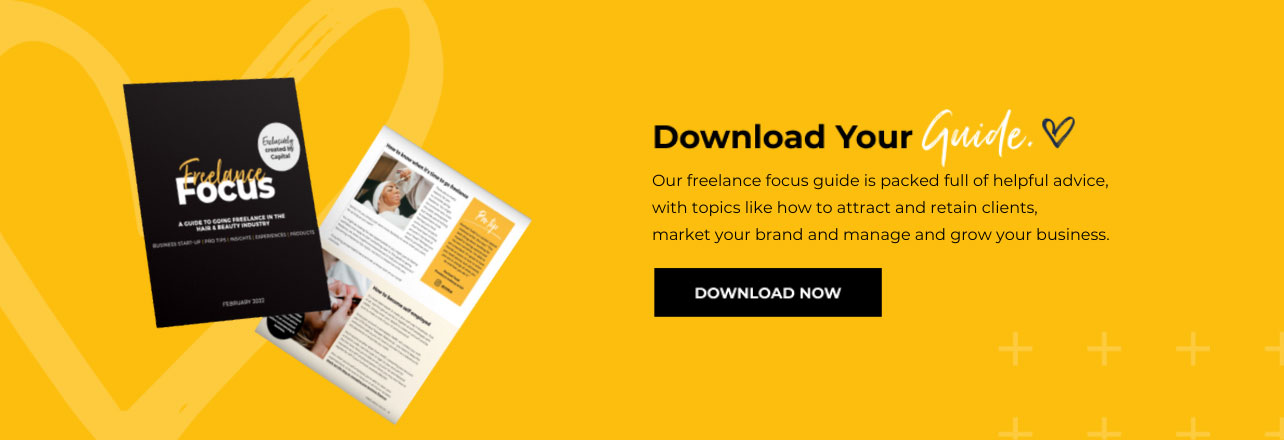Menu

Managing Your Finances as a Freelancer in 2023
The landscape of the hair and beauty industry is continually evolving, and more professionals are venturing into the world of freelancing. Understanding and effectively managing your finances is a key component of ensuring sustainable success. Here, we break down essential financial tips to set you on the right path in 2023.
Choosing Your Freelance Path
Starting your freelance journey can take various forms. Renting a chair or space within an existing salon remains a popular option. You might pay a fixed monthly fee for unlimited chair use, negotiate a daily rate, or agree upon a revenue split, such as 60/40 in your favor. These arrangements offer flexibility while building your client base.
If you prefer to be a mobile or home-based freelancer, you need to determine your desired monthly income. To calculate this, consider your monthly expenses, including:
- WiFi
- Utilities
- Phone
- Products
- PPE Equipment
- Retail Stock
- Virtual Office/Assistant
- Advertising
- Insurance and Licenses
- Accountancy Fees
- Booking and Accountancy Apps
- Travel Costs
Don't forget to include any setup costs, such as a travel kit for mobile work or furnishings for your home salon. Once you've estimated your monthly expenses, total them and multiply by 12. Add your desired annual salary and divide the sum by 12. This calculation yields the amount you need to earn each month.
With a clear monthly earnings goal, you can determine the number of clients to serve during your chosen working hours, helping you establish your final service rates.
Calculating Your Costs with Online Tools
Explore online calculators like calconic.com, which allow you to input expenses, including your desired salary, to calculate your pricing. Additionally, consider offering add-on treatments or services to maximize your time with each client, boosting your earning potential.
Periodic Pricing Review
Regularly review your pricing, primarily based on your costs. Have your expenses increased over the past year? If so, evaluate the reasons behind these changes and consider passing them on to your clients. Additionally, keep an eye on inflation; many businesses increment their prices by approximately 10% each year to accommodate this, so don't hesitate to follow suit.
Maintain an organized record of your monthly expenses using spreadsheets or accounting apps, and update them each month to stay on top of any adjustments.
Managing Your Finances
While it's essential to set financial goals and cashflow plans, never neglect the day-to-day handling of your expenses and taxes.
To streamline your finances, you have several options:
- Accountant: Hiring an accountant for a monthly fee is an efficient choice. They handle tasks like VAT returns and Self-Assessments, ensuring compliance with tax regulations.
- Online Software: Utilize online accounting software like QuickBooks, offering straightforward packages from as little as £6 per month. It simplifies the financial management process. You can record expenses, issue invoices, and manage your books efficiently.
- Hybrid Approach: Manage your day-to-day expenses and invoicing through accounting software like QuickBooks, and when it's time for tax returns, consult with an accountant for guidance.
Consider alternative accounting apps like Xero, which provides desktop and mobile apps to record expenses in real-time, making the Self-Assessment process less daunting.
Stay on top of your financial well-being and continue your journey towards freelancing success. For more tips and insights, explore our blogs on the Freelancer Focus web page or download our comprehensive Freelance Focus Guide.
Freelance Focus
Freelance Focus, is a one stop resource for anyone working as a freelancer or thinking of going freelance in the hair & beauty industry, which includes a FREE downloadable guide filled with advice, useful insights, experiences and tips (from experienced freelancers) to help you understand the steps needed to make the right choices for you.











